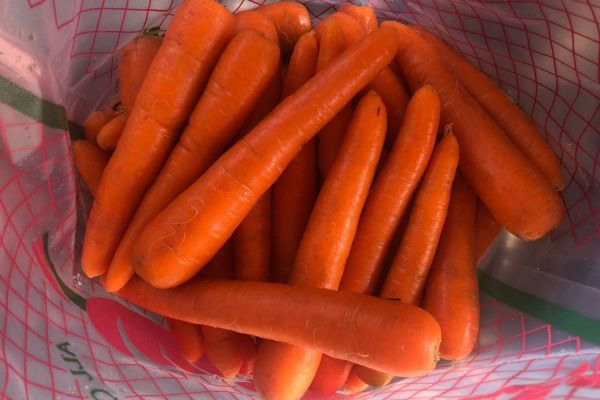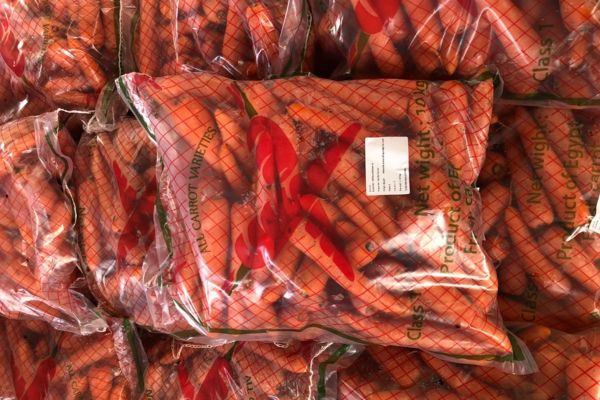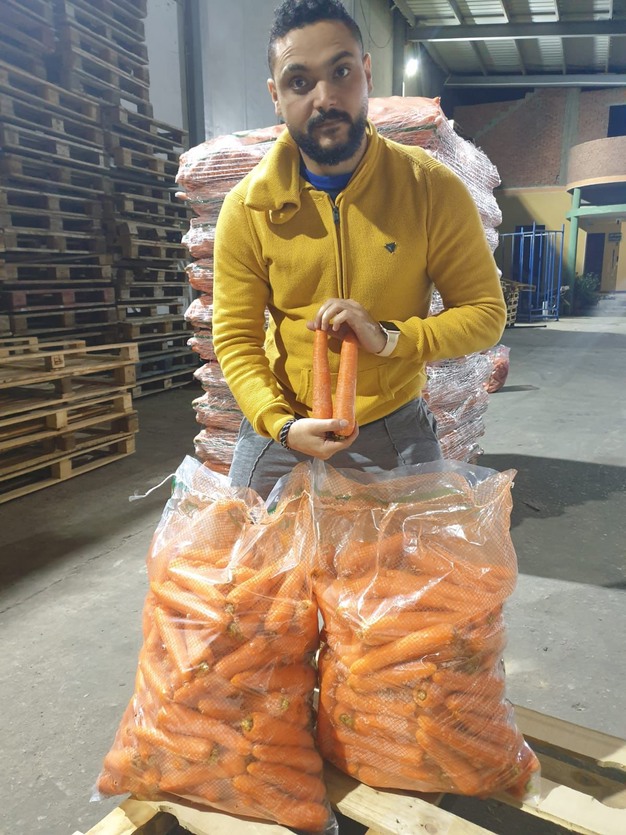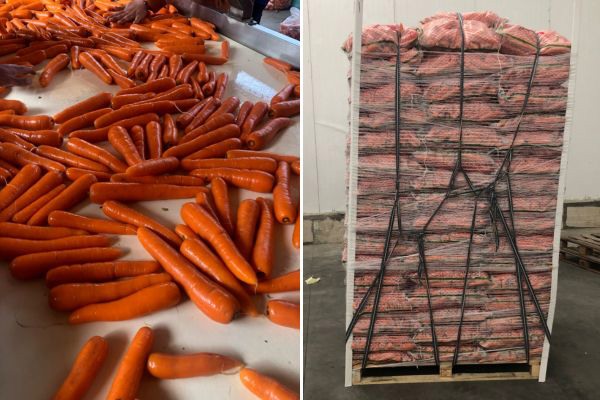The carrot season has come to an end in Egypt as Egyptian producers continue to improve their produce and conquer new markets. For Zayed Lahseen, CEO of Afrigoodgrow, this is something of an achievement, given that carrots industry only began a few years ago in the country. The exporter looks back on this journey and how Egypt is making its mark on the carrot market.

Zayed says: "Carrots are a new export product in Egypt. Previously, the quality of Egyptian carrots, grown from local varieties, was poor and could not be exported. Development work was carried out and we began to plant well-known varieties from the Netherlands and France. The result was a success, pleasing growers, the local market, and export markets. We used to export mainly to Russia, but this year we saw very strong demand from Europe, particularly the UK.
What has enabled Egyptian carrots exporters to break through this year is the crisis in Eastern Europe, which has become a global crisis. "Rising energy costs led to a reduction in European production," explains Zayed. "These markets turned to other origins for several products, including carrots. We were ready to convince the markets with our good prices and excellent quality. An indication of this quality is the fact that we export our carrots in plastic bags, thanks to their sturdiness, whereas other origins are forced to export in cardboard boxes."

Last season's high demand coincided with optimal production conditions, says Zayed, "the production conditions were perfect for carrots, especially in the desert farms which have no nematodes (roundworms), unlike the muddy farms. The season also saw a significant increase in acreage, hence a substantial rise in carrot volumes. Egyptian growers have successfully harvested well-known French varieties such as F1 Soprano, Maestro, Presto, Nanco, and Chantenay, as well as Dutch varieties such as Jerada RZ, Nairobi, and Naval.
However, the industry still has a way to go to reach maturity in Egypt. Growers and exporters are still acquiring the knowledge needed to handle the product and ensure that it reaches the customer in good condition, free from dark spots and mold. Zayed explains: "Carrots are a difficult crop for exporters to handle, and we've noticed that many exporters have encountered problems on the arrival of their containers. The reason for this is a lack of examination of the land for diseases such as nematodes, and also mishandling, since carrots are very sensitive, more so than grapes.
 The exporter shares his experience: "At Afrigoodgrows, we avoid these problems by producing carrots on desert land free of nematodes. Our carrots are then rushed to the packing station, less than 30 minutes after harvest, then washed and treated with cold water, at 0-3 degrees, and finally stored at 0 degrees until export.
The exporter shares his experience: "At Afrigoodgrows, we avoid these problems by producing carrots on desert land free of nematodes. Our carrots are then rushed to the packing station, less than 30 minutes after harvest, then washed and treated with cold water, at 0-3 degrees, and finally stored at 0 degrees until export.
"With my partner, Mohamed Hegazy, we have concluded a successful partnership this season with the grower Sayed Abu Zaid, the godfather of the carrot industry in Egypt, with over 30 years of experience, more than 2,000 acres, and his own packing plant. Our experience with him this year has been extraordinary," says the exporter. "We recently acquired a British-engineered hydrocooler and polisher, and are working on a new packing plant near Alexandria and Cairo. Hydrocooling technology is very well suited to storing carrots and delivering them free of mold and infection to their destination."
"Moreover, our investment in hydro-cooling equipment will enable us to extend our season, making it possible to store and export carrots all year round, whereas the season usually runs from January to July."

The efforts of Egyptian carrot growers and exporters are being rewarded with adequate prices, according to Zayed: "Due to the high demand for carrots, particularly in Europe and the UK, our selling prices increased over the last season from an average of $0.55 per kg to $0.62. However, this increase is negligible, as carrot prices in European retail are over $2 per kg. And despite this increase, our prices remain lower than those of competing origins, such as Australia, Turkey, and Spain, while our carrots are of excellent quality.
"We have every reason to believe that Egypt has entered the carrot industry to stay and excel. There is great potential, larger volumes every season, and investments are being made in the constant search for the best quality we can offer the world", concludes Zayed.
For more information:
Zayed Lahseen
AfriGroodGrow
Tel: +420 739 019 060
Email: z.lasheen@afrigoodgrow.com
www.afrigoodgrow.com
